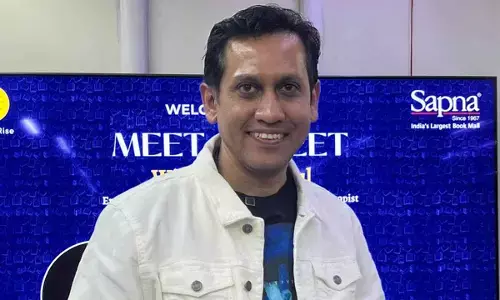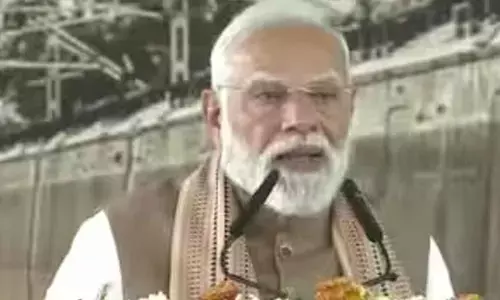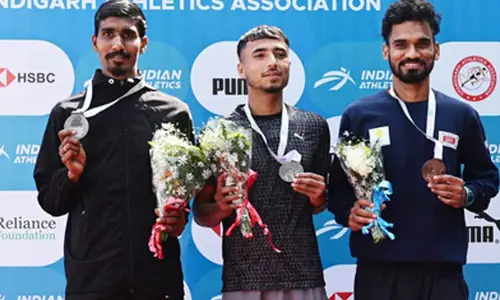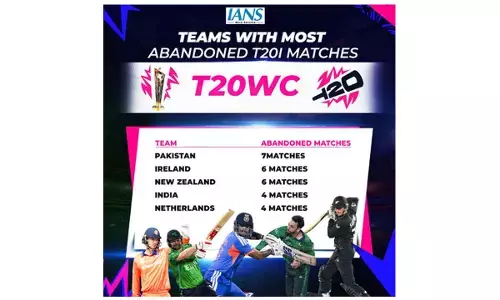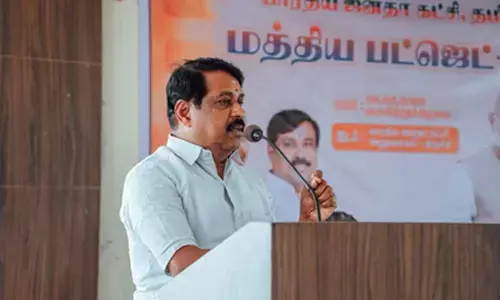Lessons to be learnt from Israel

Except its tiny size, Israel has great resemblance to India. Of around 1 crore population, about two thirds follow Judaism just as in our country about 80 per cent of the population consists of the followers of Sanatana Dharma, also known as Hinduism
Hyderabad: Except its tiny size, Israel has great resemblance to India. Of around 1 crore population, about two thirds follow Judaism just as in our country about 80 per cent of the population consists of the followers of Sanatana Dharma, also known as Hinduism. Judaism and Hinduism both are very ancient religions, yet both the countries are officially secular. Israel has recognised Hebrew as its official language, which is one of the ancient languages. However, though all Indian languages are the off-springs of Sanskrit, we have yet to recognise Sanskrit as the official language. It is well known that for a language to survive and flourish, the royal patronage is must. And without it no language can on its own remain evergreen.
Like Israel, in our country also the Muslim population is about 18 per cent. However, there is a significant difference between the converted Muslims of India and the original Arab Muslims of Israel. The Israeli Muslims have never raised hue and cry against military action on Muslim countries such as Lebanon, Palestine, Syria, Iran, Iraq, Yemen. On the other hand, our converted Muslims are unnecessarily indulging in breast-beating over the so called injustice meted out to Muslims in Islamic countries by the non-Muslim enemy countries.
So much so, even a Muslim member of parliament from Hyderabad had audacity to shout, ‘Jai Palestine’ after taking the oath as an MP recently. This MP conveniently forgot to take note of the murderous strike on October 7 last year by the Palestinian terror outfit Hamas on a group of civilians partying in Israel and taking about 350 men, children and women as hostages.
It is pertinent to note that not a word of sympathy towards the innocent Israelis has been uttered by the so called champions of democracy in India. Leave alone condemning the dastardly attack on the innocent people of Israel.
Israel must be appreciated that it has emerged as the saviour of freedom, harmony and religious tolerance in the recent years despite it being encircled by over five dozen Muslim countries. It has never given up its fight against Jehadi and terrorist elements.
Thus, the writing on the wall is clear. The non-Islamic world has to come together to fight tooth and nail against the barbaric Jehadi forces who are nothing but an affront to a civilised society. In short, if the humanity is to survive, ethos of peace and harmony are to prevail over savage behaviour of fanatic Muslim forces, the rule of law has to be established for the common good of mankind. It is high time the civilised nations unite strongly and give a befitting reply to the sinners under the guise of followers of Islam.
For radicalisation of some Muslims in the name of Prophet Mohammed and Quran, the ill-educated or even illiterate so called religious teachers called Maulanas and Moulvis are largely responsible.
The real interpretation of teachings of the Prophet and Quran is deliberately blacked out from the large Muslim populace. These ‘rakhewals’ (watchmen) firmly believe that once their followers are told about the basic tenets of Islam as propagated by the Prophet and Quran, they will lose their hold over gullible, innocent and poor Muslims. The basic tenets of Islam as the scholars vouchsafe are humanity, peaceful co-existence, harmony and prosperity in a society. Once the masses following Islam are told about these basic tenets, the vested interests striving to perpetuate disharmony, enmity and violence will fall flat.
This is indeed, a herculean task, but has to be attempted to by the right thinking people and nations. Till then, all the peace-loving nations must fight tooth and nail the misguided barbarous jehadi forces to sustain peace and prosperity in the world.
SC OPENS THE GATES FOR CREATION OF CREAMY LAYERS BY STATES
A larger seven-judge bench of the Supreme Court of India presided over by the Chief Justice D Y Chandrachud on August 1, in its 565 page judgment, over turned the 1984 judgment of a Constitution bench in EV Chinnaiah v. State of AP, holding by 6:1 majority and held that Articles 14, 15 and 341 permit the states to sub-categorise from the reserved communities for the purpose of reservations in education and jobs.
The bench also included Justice B R Gavai, Justice Vikram Nath, Justice Bela M Trivedi, Justice Pankaj Mithal, Justice Manoj Misra, Justice S.C.Sharma. However, the majority judgment in the case titled State Of Punjab and Ors. v. Davinder Singh and Ors., laid down certain stipulations to be observed while doing so.
Justice Bela M Trivedi in her dissenting judgment held that against the presidential order creating reservations, there cannot be any discretion of the states. This landmark judgment puts an end to much discussed question whether there can be creation of sub-categories in a reserved category.
CHHATTISGARH HC SETS ASIDE DISMISSAL ORDER
Justice Goutam Bhaduri of the Chhattisgarh High Court recently set aside and order of dismissal of a Anganbadi Sahayika stating that the same was passed at a time when her case was pending in the High Court. The court also held that the petitioner was not given a chance to put up her defence; hence it was against the natural law of Justice.
Delivering the judgment in the case titled, Ansusuiya Bai Vs.State of Chhattisgarh and others, the court relied on the apex court ' s judgment in Dharampal Satyapal Ltd Vs. CCE.
KERALA HC ON VOYEURISM
While dismissing a petition for quashing the case filed by the police under Section 354 (C) of the IPC read with Sections 65 and 66 of the Information Technology Act against doctors and the hospital for sharing a video of a cesarean surgery of a woman delivering triplets through WhatsApp, the Kerala High Court termed the act as serious and violative of the privacy of the concerned woman. Dismissing the quash petition filed by Sunil P and Another Vs. State of Kerala, the High Court opined that the police had recovered the video from the mobile of the accused doctor, hence the case does not require any interference of the High Court.
PRIMA FACIE PROOF NECESSARY TO DRAW PRESUMPTION UNDER SECTION 90 OF EVIDENCE ACT
Justice Gautam Kumar Choudhary of the Jharkhand High Court has held that mere the age of the document is not enough to conclude about its execution. Along with this, there must be some prima facie proof to arrive at such presumption under Section 90 of the Indian Evidence Act.
While dismissing a second appeal in the case titled, Sanjeeda Begum and others Vs. Mohd. Eqbal vide judgment dated July 19, the court held that there was no illegally in the judgments delivered by the courts below.


